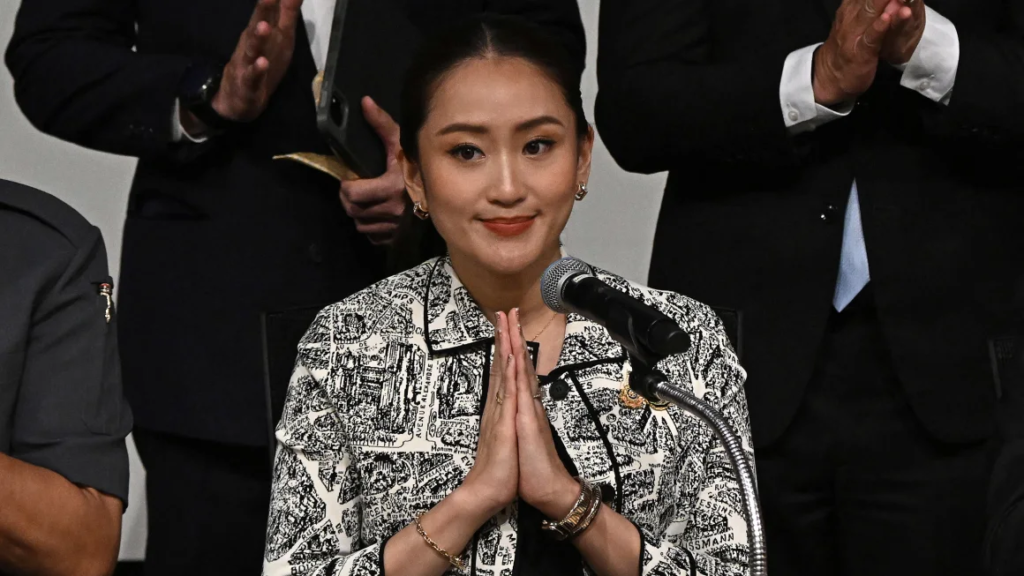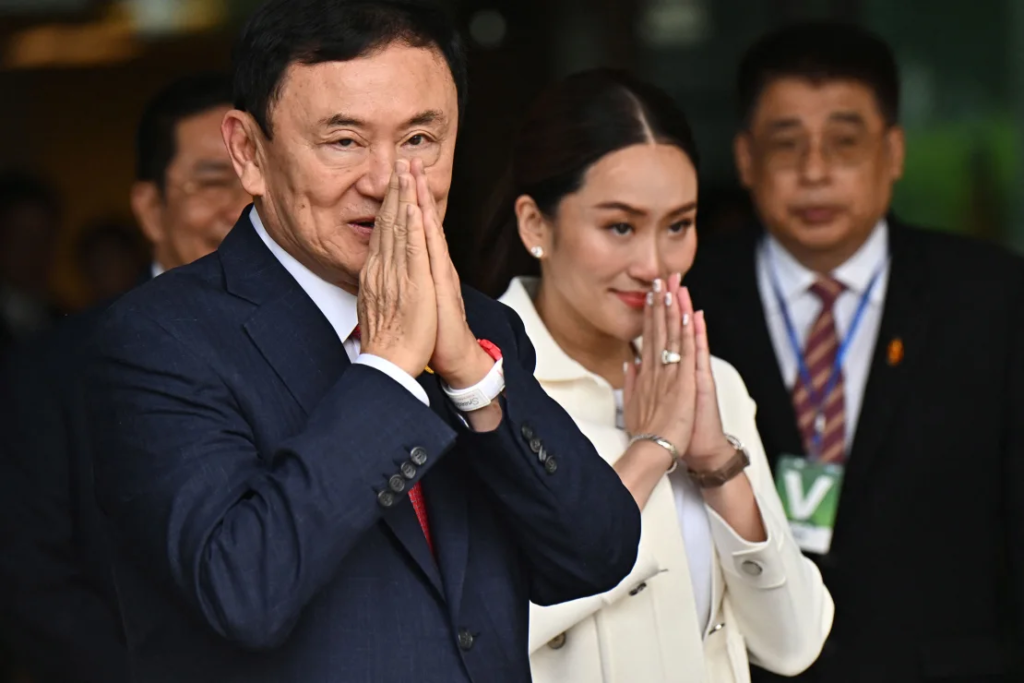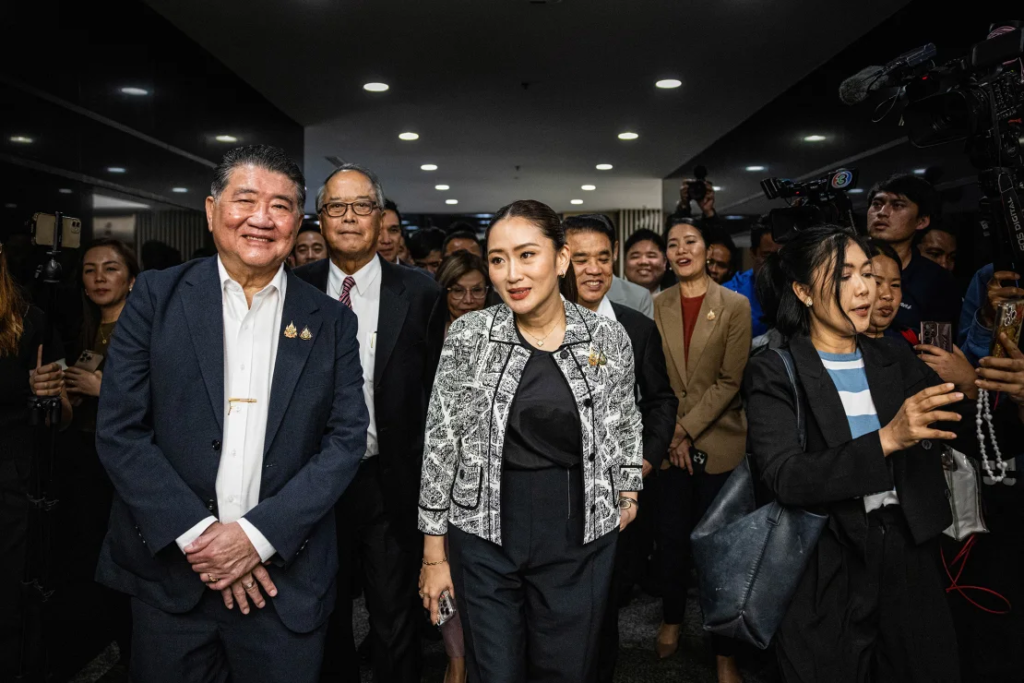
Thailand has elected Paetongtarn Shinawatra as its youngest Prime Minister. She is the daughter of the influential former leader, Thaksin Shinawatra. Moreover, Paetongtarn secured a decisive victory in the parliamentary vote, making her the third member of the Shinawatra family to hold the nation’s top office.
Paetongtarn Shinawatra, also known as “Ung Ing,” is set to become Thailand’s youngest prime minister after a recent vote in parliament. Paetongtarn, the 37-year-old daughter of former Prime Minister Thaksin Shinawatra, received 319 votes in the House of Representatives. She was nominated by her Pheu Thai party’s ruling coalition to replace outgoing Prime Minister Srettha Thavisin. However, before she can officially take office, she must be endorsed by King Maha Vajiralongkorn.
This development comes just two days after the Constitutional Court removed another prime minister, adding to the country’s political uncertainty. Paetongtarn’s appointment marks the continuation of the Shinawatra family’s significant influence in Thai politics. Her father, Thaksin, and her aunt, Yingluck Shinawatra, have both served as prime ministers. Although their terms were cut short by military coups or court rulings.
Paetongtarn is a newcomer to politics and was one of the candidates for prime minister in last year’s national elections. She even makes headlines for giving birth just two weeks before the vote. As she steps into her new role, she faces several challenges, including addressing Thailand’s struggling economy and reviving her party’s popularity.

PM’s Political Journey So Far
Thaksin Shinawatra, who has been a dominant figure in Thai politics for over two decades, returned to Thailand last year after spending 15 years in self-imposed exile. His return coincided with the appointment of Srettha as prime minister. It led to speculation that Thaksin made a deal with the Thai establishment. Although Thaksin denies these claims, his influence on the Pheu Thai party is evident, now extending through his daughter.
Paetongtarn’s leadership comes at a time of significant political tension in Thailand. The Constitutional Court recently ordered the dissolution of the Move Forward Party, a popular progressive party, and removed Srettha from office for ethical breaches. These actions have raised concerns about the erosion of democratic rights in the country. It also sparked debate about the power of the conservative establishment in Thai politics.

